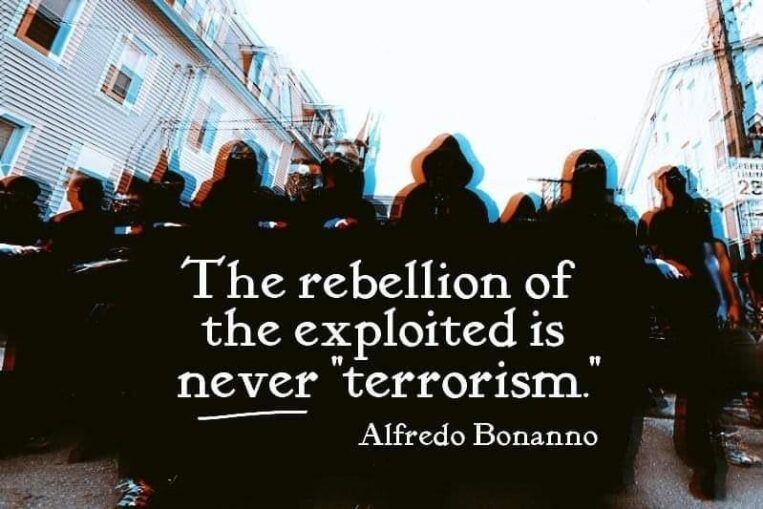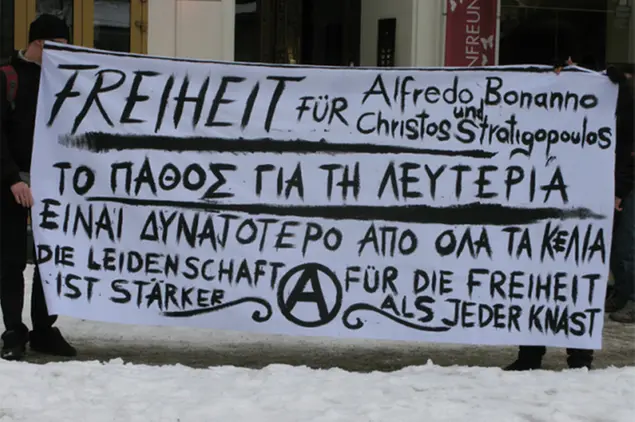
He has been arrested several times, but he has remained a point of reference for a certain intellectual world. He died in Trieste at the age of 86.
His name will not mean much to the general public, but for part of the variegated anarchist world, Alfredo Maria Bonanno was much more than a point of reference. He died this morning, Wednesday 6 December, in Trieste, he was 86 years old: the news gradually spread among friends and companions, informed by his wife. The comrades themselves remember him today for his rigor in searching for original texts by anarchist theorists and for the logic pursued in the discussions.
His story is enormous in its own way, as much as his inexhaustible journalistic commitment that over the years has also brought him legal troubles: as when in 1972, for an article in the magazine “Sinistra libertaria” that incited insurrection, he was sentenced to two years.
Another year and a half took him for another controversial writing, La gioia armata, a 1977 review for the magazine “Anarchismo” of a small volume of the Vulcano editions entitled Colpo su colpo, which included a biography of the French anarchist Emile Henry, two of his letters, the account of the trial he underwent, an appendix with a letter by Errico Malatesta, tutelary deity of Italian anarchism.
Hitting in the pile
It was the same Henry who carried out a bomb attack in the Café Terminus at the Gare de St. Lazard in Paris, killing one person and injuring about twenty and for this he was guillotined at just 21 years old, on May 21, 1894. And Bonanno described a “young, cultured and intelligent” Henry, who “coldly made a decision that others had matured and understood, but did not realize”: precisely the indiscriminate attack.
Henry who “attacks the bourgeoisie, not this or that representative of the state institution, this or that policeman, magistrate, executioner, torturer, spy or traitor, no: the whole bourgeoisie. He strikes in the heap, without discrimination. He carefully chooses one of the places that this class frequents, goes there with his infernal device, lights the fuse, throws the bomb and leaves.”
And finally, in just three lines with a rare gift of synthesis: “Here. Striking in the crowd, today, so long after Henry’s gesture, would not only be a valid gesture but would also be a theoretical contribution to the movement, once again, a qualitative leap.”
The Political Testament
Bonanno was mocked by the anarchist world. Amedeo Bertolo, a point of reference for Milanese libertarians and others, wrote, for example, as follows: “We tried to laugh at him because we know the author and his unsatisfactory need to perform increasingly impressive rhodomontades, pour epater le bourgeois, or more likely, since these days it is difficult to impress the bourgeois with decidedly inflated verbal truculences, pour epater l’anarchiste. For years, after all, Alfredo Maria has been devoting himself to scourging the softened and bourgeois anarchist movement (excluding himself) with the modesty of a public prosecutor, the grace of a brawler and the naivety of an advertiser.
Bonanno, however, would never change his position, even getting noticed in 1978 for a curious publication: an author’s forgery, attributed to Jean Paul Sartre (My Political Testament, obviously full of very violent passages against bourgeois society), which was also taken at face value by the press.
The Ideologue

Over the years, after having worked first as a banker at the Banco di Sicilia (he was originally from Catania) and then even as an industrial manager, Bonanno gradually gained a very particular and progressively less isolated position in the libertarian galaxy.
To the point of finding himself, in the new millennium, as an “ideologue” of the anarcho-insurrectionists. All this, however, always passes through arrests and trials: for example, in 1989, when he was arrested for robbing a jewelry store in Bergamo, or seven years later, when the investigators indicated him as the leader of an armed gang, the Orai (Revolutionary Anarchist Insurrectionist Organization). Sentenced to 3 years and six months in the first instance, which became six on appeal, Bonanno was reported in 2009, for a further two-year sentence for complicity in robbery in Greece.
Returning to the “intellectual” front, one of his most surprising works was, in 2003, the publication of the long correspondence he had between 1998 and 2000 with Gianfranco Bertoli, the bomber of the massacre at the Police Headquarters, in whose anarchism Bonanno did not believe at the time.
But then he changed his mind: this is evidenced by the hundreds of letters that the two wrote to each other at the end of the millennium, a correspondence that only Bertoli’s death interrupted. In addition to his wife Annalisa, an anarchist companion in the second half of his life, Alfredo Bonanno leaves a son with her. And that bears the same name.
https://anarchistnews.org/content/alfredo-maria-bonanno-ideologue-anarcho-insurrectionists-has-died